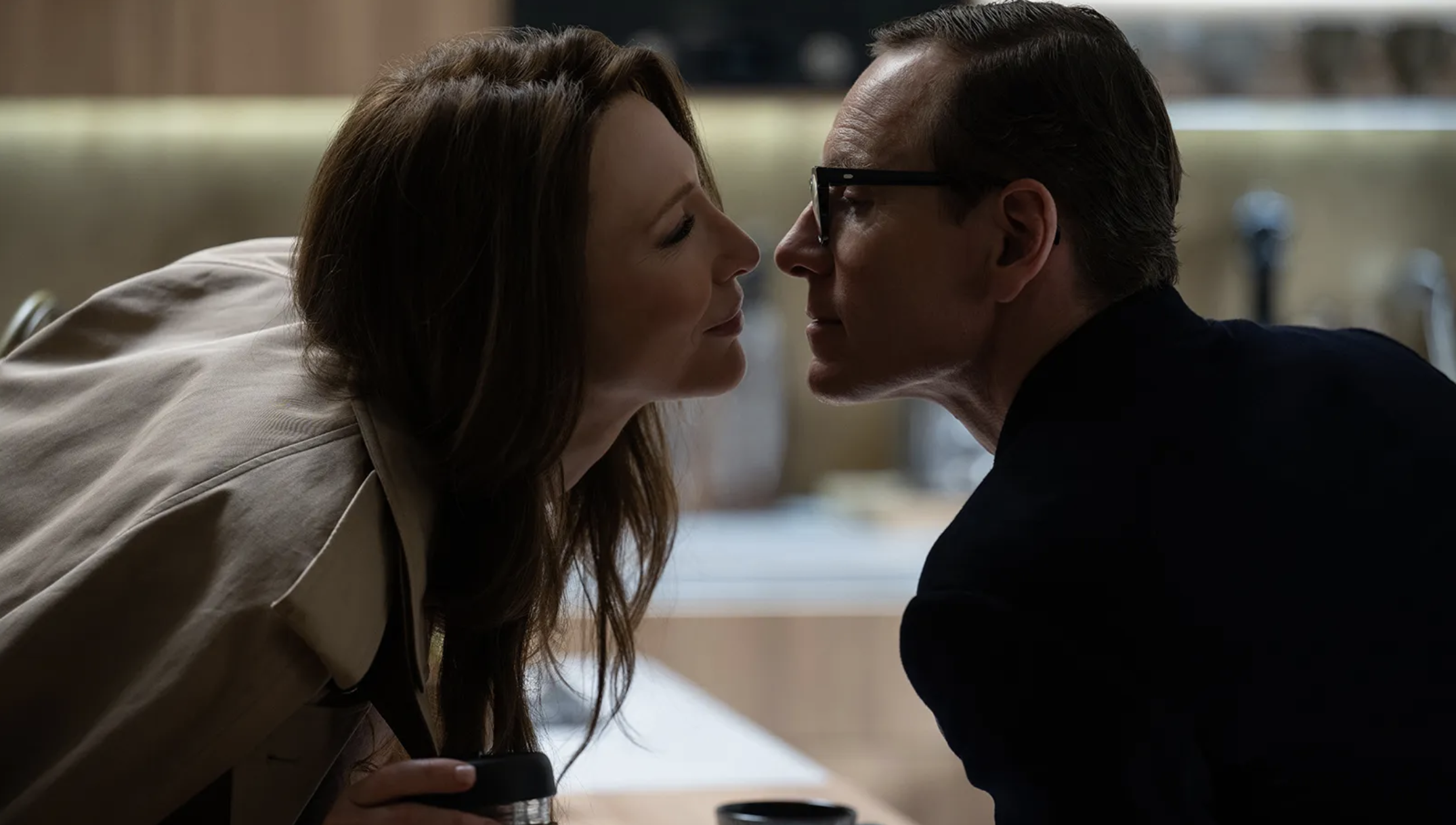THE BALLAD OF WALLIS ISLAND
Directing: B
Acting: B
Writing: B
Cinematography: B+
Editing: B+
Music: B+
It’s been some years since I went to a movie, and loved the soundtrack so much I sought it out later, only to discover that no soundtrack album has actually been officially released. Notable recent examples have been All of Us Strangers (2023) and Babygirl (2024)—the best I could find in either case were playlists assembled by other Apple Music users. Oh sure, you can find “soundtracks” to both films, but in both cases it’s the original score, quite separate from the fantastic collection of pop songs featured in the films. I can only theorize that, in the age of digital music subscriptions, packaging and selling soundtrack albums just isn’t worth the effort it once was. I get it, and it also makes me sad.
Enter The Ballad of Wallis Island, for which I am delighted to report a soundtrack album of the songs featured actually has been released. The songs are performed by Tom Basden and Carey Mulligan, who also star in the sweet, touching drama that uses folk music to tug on our nostalgic heartstrings.
I find myself wondering how many others watching The Ballad of Wallis Island also thought of the excellent 2013 Coen Brothers film Inside Llewyn Davis, to which this new film is a spiritual sequel of sorts. Inside Llewyn Davis also costarred Cary Mulligan, and also has a truly wonderful soundtrack. It’s almost unfair to bring it up, as on every level, Inside Llewyn Davis is better: it’s a far better story; the folk music is of far higher quality; the performances are much more indelible. It’s a classic piece of cinema in the way The Ballad of Wallis Island could never hope to be.
But, even as The Ballad of Wallis Island serves in many ways as an echo of that other, better film, it also complements it well—the Coen Brothers have always brought with them a deeply (and entertainingly) cynical sensibility; this year, director James Griffiths, and in particular co-writers Tom Basden and Tim Key (who also play the two lead characters). bring with them an innocent hopefulness. The character Charles Heath (Key), who has hired legendary folk duo McGwyer Mortimer (Basden and Mulligan) to come to his very remote home island to play a gig for just him, has a charming naivetée. He talks way too much, something that would usually be annoying—to be fair, it regularly annoys Herb McGwyer—but somehow, here it’s endearing. Even as he’s annoyed, even Herb says at one point, “He’s actually kind of sweet.”
I should note now that McGwyer Mortimer broke up a decade ago, but Charles made them both offers they could not refuse, and managed to get them to reunite by not telling Herb that Nell Mortimer was also coming. Misunderstandings and frustrations predictably ensue. Nell arrives with her new husband, Michael (Akemnji Ndifornyen), an American Black man with an affinity for birding. Michael is the character with the least dimension, an unfortunate disservice to the only Black character in the film, who only ever serves as a character device, and at one point is unnecessarily hurtful to Herb. Also, it’s odd to have Michael be the one American character in the film, even though Akemnji Ndifornyen himself is actually British.
With the addition of local shopkeeper and object of Charles’s affection, Amanda (Sian Clifford), The Ballad of Wallis Island has all of five characters with speaking parts (six if you count the one very brief scene with Amanda’s teenage son). Otherwise, there’s a couple of scenes with boat drivers, taking the entirety of the cast number to nine. This would have been a great production to have mounted during covid restrictions. Sometimes a small cast of characters, when written well, can really work, though. The Ballad of Wallis Island skirts the bounds of treacly, but it worked on me. This is largely thanks to the music, which, while not amazing enough to feel plausible as the output of a “legendary” folk duo, still has a unique power to elevate the material.
Also, Tim Key is worth singling out as Charles, a truly unique character in his ability to elicit charm and empathy even when his clueless behavior is exasperating. Both he and Amanda are written as charmingly ignorant, sometimes a little stupidly so: are we really to believe that Amanda, as the shopkeeper, does not even understand what a peanut butter cup is? or that Charles has never heard of a mosh pit? (This reference makes sense in context; it’s brought up as a joke that Charles doesn’t understand.) Portraying rural island dwellers as jaw-dropping simpletons is a little odd.
I would not be inaccurate to say that most of the characters in The Ballad of Wallis Island are one-note—but, what a pretty note it is. They players play it well, and all to a lovely soundtrack. This movie did make me nostalgic for better days and better things, but it’s a pleasant experience all the same.
This movie deserved more of Cary Mulligan. Justice for Carey!
Overall: B










